Carolicious founders Carolina Garcia and Carolina Salinas immigrated to the Boston area in 2015, following some of their children who first came to the area for college. Business partners back in Venezuela, they quickly identified food as a business opportunity for themselves. When they went to Somerville City Hall to inquire about registering a new business, a staffer referred them to the Somerville Arts Council’s Nibble program, a culinary business incubator for immigrant entrepreneurs.
Garcia and Salinas tried sweets at first, but soon pivoted to arepas —the cornmeal-based pancakes stuffed like sandwiches, a staple meal in Venezuela and Colombia since before the arrival of Spanish colonizers. The pair did their first pop up in 2017, at a bar. Connections and invitations soon started rolling in.
“They started calling us ‘Las Carolinas,’” says Garcia. “We were everywhere, festivals catering events, farmers markets. We never said no.”
One local brewery had them doing a pop-up for four days a week. It did so well they were there for a year before city inspectors came and said it was time to make things permanent. After navigating the licensing process, they became a permanent resident vendor inside the brewery — and two other vendors have since joined them, creating a mini food-hub in Somerville. When the brewery opened a second location, they asked Carolicious to expand with them.
Eighty percent of food businesses fail within their first five years. Carolicious is nearing the end of its fourth year, but so far looks to be an exception. The pair just opened their third location, at a new space called “The Launchpad” on the campus of MIT in nearby Cambridge. Instead of paying a fixed amount of rent, Carolicious pays a small percentage of its monthly revenue at the location. And instead of Carolicious having to pay to build out the space, the university invested its own dollars.
The opportunity at MIT came about through a partnership between the university and CommonWealth Kitchen, the commercial kitchen and food business incubator based in Boston’s predominantly Black Dorchester neighborhood. Carolicious is one of three businesses CommonWealth Kitchen brought in to take over a food court in MIT’s student center that had lost its previous three tenants during the pandemic. It’s just a one-year pilot for now, but the university says if it works out they plan to keep it going.
Meanwhile, CommonWealth Kitchen is already planning to replicate the model in other locations. Anywhere an anchor institution or developer might bring in corporate chains to fill cafeterias or kiosks, CommonWealth Kitchen wants to be there with its locally owned businesses. Partnerships like this are becoming a big piece of the food business incubator’s strategy to create growth pathways for its members — a majority of whom are entrepreneurs of color.
Carolicious currently has a team of about ten people, including Las Carolinas, and they’re already stretched thin and looking to hire more.
“We’re looking for more people now, training new people because we want to grow and grow,” says Garcia. “We have the possibility to continue the catering side but if we’re too busy here we can’t do all that until we have more people on the team.”
Hispanic- or Black-owned businesses are typically much smaller than white-owned businesses, including fewer employees per business. The food and accommodations sector is no exception to that. According to the U.S. Census Bureau’s Survey of Business Owners, in Boston, Cambridge or Somerville, Massachusetts, the average white-owned food business earns $1.1 million in revenue per year, while Hispanic-owned food businesses earn just $243,000 in revenue per year and Black-owned food businesses earn $475,681 in revenue per year. White-owned food businesses in the same three cities have around 17 employees on average, compared to 8.5 employees on average for food businesses owned by people of color.
You could chalk up those disparities to a need for more entrepreneurship training, but that need exists for entrepreneurs of all races. Some, like Las Carolinas, start out with a lot of experience in how to run a business, even if it’s in a different industry or different country than the one they’re in now. A lack of training isn’t the only factor that explains racial disparities in business size — it may not even be the most important factor.
What Las Carolinas and Carolicious also needed was connections — introductions to festival organizers, pop-up location hosts like the local brewery, and MIT.
In Boston, like in most cities, business connections are just as segregated as housing markets. People do business with who they know, a fact that has had predictable results for city procurement contracts in Boston.
In Boston, a city-commissioned analysis published earlier this year looked at 47,000 contracts totaling almost $2.2 billion that the city of Boston awarded between 2014 and 2019. Of that, just 0.4 percent, or $9 million, in contract dollars went to Black-owned businesses and just 0.8 percent, or $18 million, went to Hispanic-owned businesses. That’s despite the fact that, according to the analysis, Black-owned businesses alone represented more than three percent of the firms available for those contracts and more than five percent of the firms available for subcontract dollars.
It’s that kind of segregation in business connections that had CommonWealth Kitchen talking to MIT as well as other universities, hospital systems and other “anchor institutions” around the Boston metro, looking to see where the kitchen incubator could connect the businesses in its networks into those other networks. Pre-pandemic, the kitchen incubator was working to get MIT’s internal dining services to purchase from sauce companies working out of the incubator’s facility. Since its inception, CommonWealth Kitchen has had an eye on scaling up food businesses, with a focus on food businesses owned by people of color or immigrants.
“We’ve been trying to crack the code on institutional procurement for a very long time,” says executive director Jen Faigel. “We’ve mostly focused on how to get our product companies integrated into cafeteria menus.”
Although the pandemic stalled some of the earlier plans, when the time came to start thinking about reopening campus to students and the public, MIT approached CommonWealth Kitchen about taking over a second-floor food hall in MIT’s student union building. Usually this would be the kind of thing where MIT would publish an RFP and probably attract some national corporate chains to fill the space, but instead MIT asked Faigel for a list of potential tenants from her networks. MIT students got to express their preferences for who they wanted off of that list to move into the space.
“They came to us and said ‘what if we gave you a one-year lease as a pilot?’,” says Faigel. “But we knew, given the businesses we work with and coming out of a pandemic, it had to work differently. We were literally negotiating the terms until the day [the space reopened].”
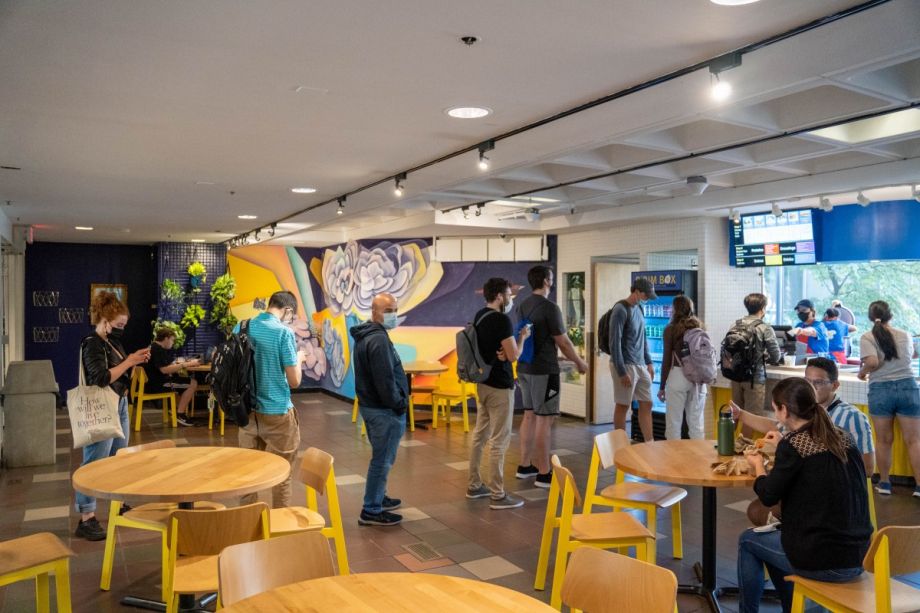
People lining up at MIT's “Launchpad” (Tory Preston-Djamboe for CommonWealth Kitchen)
Faigel wanted to establish a model for leasing that would reduce the risk of coming into a new space like this for CommonWealth Kitchen businesses. So instead of a fixed monthly rent amount, the three tenants pay 9% of their monthly revenue up to a certain threshold, beyond which they pay 6% of their revenue for that month. It’s not completely unheard of for retail tenants to have arrangements like these with commercial landlords, but it’s not that common for large entities to make these kinds of arrangements with startups or less established businesses that don’t have a big brand or celebrity chef to throw around.
“It’s a lot of risk to hire staff and go through all this,” says Faigel. “If you have a required monthly rent, that just adds to a lot of what-ifs right now at this moment. So there was a lot of back and forth to work our way through that. Negotiating with dining services staff and MIT’s procurement office, working through insurance issues.”
CommonWealth Kitchen is also serving as a kind of intermediary between the tenants and MIT, making sure permitting issues and insurance are covered, and providing support to help the new tenants adjust to working on a campus with 11,000 students and 12,000 employees.
“You can’t be too complicated,” says Faigel. “Don’t use too much inventory, don’t do too many things that are too complicated that will take too long and then the experience for diners suffers. In many cases they don’t have [recipes] written down in the way that they need to in order to be in more than one location. Also working with a bunch of college students is different than a neighborhood or community setting.”
Access to capital for building out new spaces is another barrier that is a consistent factor putting some business owners at a hidden advantage relative to others. Black-, Hispanic- or women-owned businesses typically don’t have as strong ties to banks as those owned by white men — the ramifications of which have been blatantly apparent over the pandemic, with small businesses owned by people of color being last in line for Paycheck Protection Program loans across the country.
Beyond emergency loan programs, the Small Business Administration’s 504 loan guarantee program supports private bank loans for real estate or major equipment purchases by small business — but in Fiscal Year 2020, the 504 program supported 7,119 loans, of which only 128 went to Black-owned businesses, only 552 went to Hispanic-owned businesses, and only 766 went to businesses where women were at least 50% owners.
For The Launchpad, CommonWealth Kitchens convinced MIT — whose endowment reached record levels over the past year — to pay for the build-out of the new space, including a new refrigeration system. Faigel isn’t sure how much money the university put into the space, but it is part of the model she wants to carry forward, to make sure the businesses she’s connecting to new opportunities get a “turnkey” space to come in and get right to work without having to risk taking on any debt.
“To MIT’s credit they really wanted to get it done,” says Faigel. “Also at some point time was not on their side. We had leverage because they needed a solution, we were a one-stop solution, they had already been talking to students about this idea and got students excited about this as a concept. And it was very clear that what we had heard from staff and indirectly from other folks we know that the university was looking at everything and where could they get a quick win to demonstrate their desire to do something differently. This one was relatively easy for them.”
Las Carolinas have their hands full for now, but they see the Launchpad as a big step to bigger things.
“MIT is the big leagues for us, we have to do it very well, to do this even better to let all the people get in love with Venezuelan food and with our culture,” Garcia says.
This article is part of The Bottom Line, a series exploring scalable solutions for problems related to affordability, inclusive economic growth and access to capital. Click here to subscribe to our Bottom Line newsletter.

Oscar is Next City's senior economic justice correspondent. He previously served as Next City’s editor from 2018-2019, and was a Next City Equitable Cities Fellow from 2015-2016. Since 2011, Oscar has covered community development finance, community banking, impact investing, economic development, housing and more for media outlets such as Shelterforce, B Magazine, Impact Alpha and Fast Company.
Follow Oscar .(JavaScript must be enabled to view this email address)



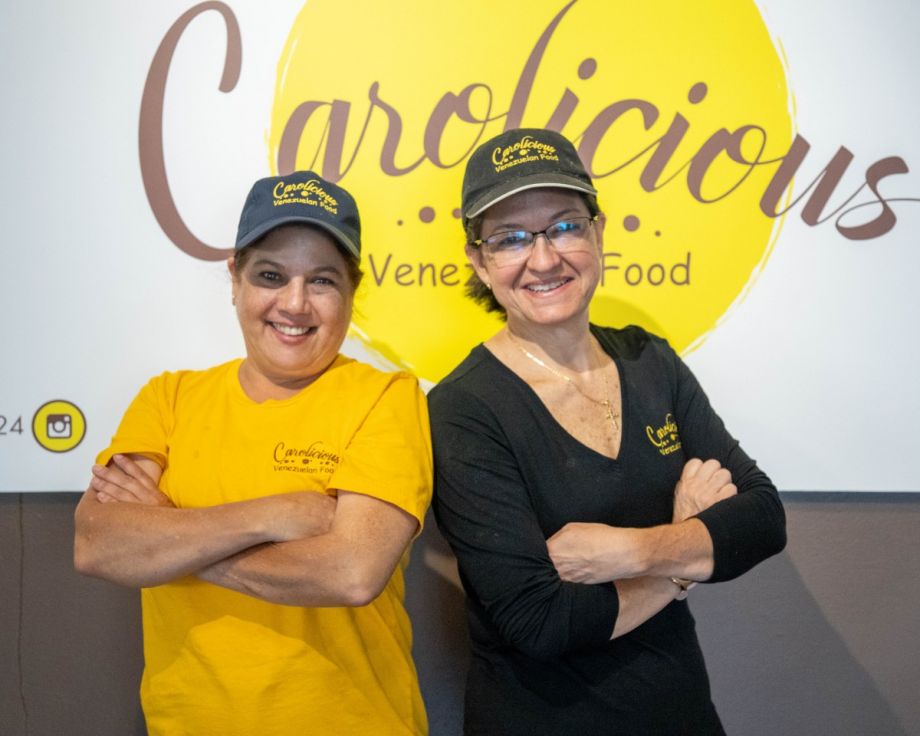
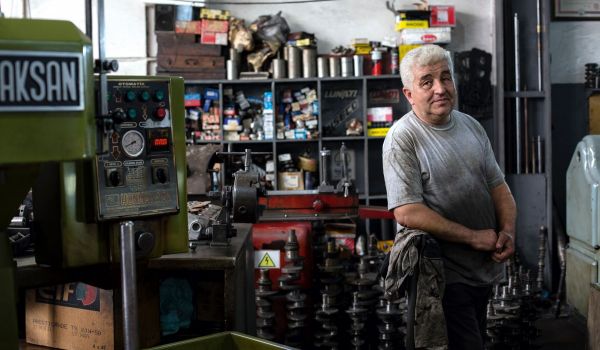

_600_350_80_s_c1.jpeg)


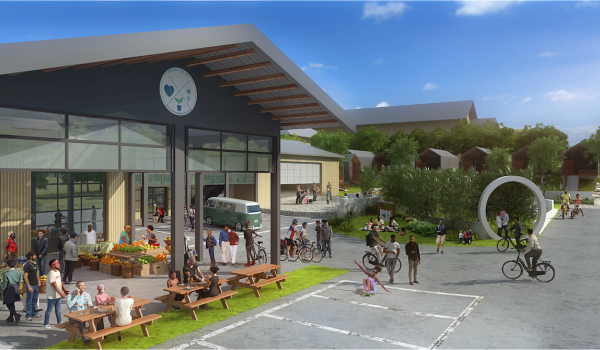
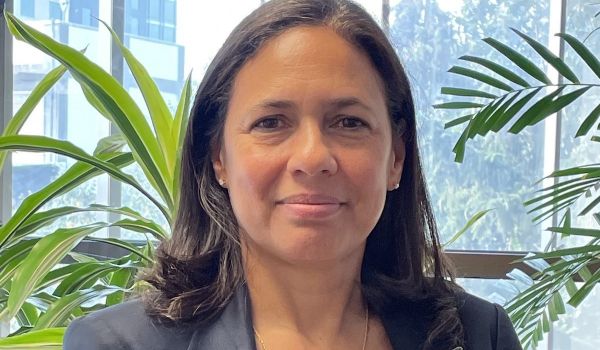
_600_350_80_s_c1.JPG)






